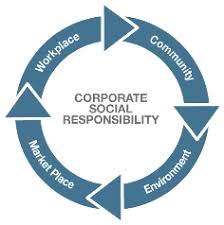|
Research Title/
Graphical Abstract
|
Article Information/
Abstract
|
Download
|
|
Study of the effectiveness of cognitive group therapy in relapse prevention among substance abusers

|
Original Research, B10
Imani Z., Sabetimani M., Arjomand Ghojur K.
Asian J. Med. Pharm. Res. 2(3): 47-52, 2012
ABSTRACT: This research project studies the cognitive group therapy effectiveness in relapse prevention among the outpatients in Uromiyan Welfare Self Introducing Center. The objective of this study is to increase the knowledge in relation with this method’s effect on relapse prevention. The method used in this study was experimental method of pretest, posttest type with control group. To carry out this study project, 30 substance abusers were randomly selected and placed in two groups of experimental (15 people) and control group (15 people). The experimental group received cognitive group therapy in 12 sessions and the control group did not undergo any experiments. Measurement tools include relapse prediction scale, nonstructural clinical interview and educational program for cognitive group therapy. Research hypothesis: Cognitive group therapy has a positive effect on relapse prevention in substance abusers. For hypothesis test, t test was used. The conclusion obtained from the research showed that cognitive group therapy method has a positive effect on relapse prevention among narcotic dependents.
KEYWORDS: Cognitive Group Therapy, Relapse, Relapse Prevention, Substance Abusers, Narcotic Dependent Persons
|
 |
|
The Role of Social Responsibility in Administration System of Health Promotion

|
Review Article, B11
Mohammadi Moghadam Y., Sedaghat Poor F.and Erfanifar A.
Asian J. Med. Pharm. Res. 2(3): 53-57, 2012
ABSTRACT: Today, the term corruption is used along with administrative health issues and its lack causes the serious problems for the growth and development of countries especially developing countries. And social responsibility in health promotion bureaucracy is an undeniable necessity. Social responsibility of organizations have a profound impact on social systems and their activities should be in a way that they will not harm the community and relevant organizations are required to compensate for existing losses. Therefore, this study examines the role of CSR on the administrative system of health promotion at the University of Maragheh using a descriptive–survey method. In order to conduct the surveys and research laid the conceptual model library. In this study, based on randomly selected sample of staff and faculty of Maragheh, 86 questionnaires were distributed and among them 70 were collected. For a detailed analysis of data collected from a sample, the SPSS software is used and the results shows the impact of the assumption of social responsibility in promoting awareness and knowledge of the research hypotheses have been confirmed.
KEYWORDS:Corruption Administrative, Health Administrative, Social Responsibility.
|

|
|
Formulation And Evaluation of Lipstick Containing Herbal Ingredients

|
Original Research, B12
Mishra P and Dwivedi S.
Asian J. Med. Pharm. Res. 2(3): 58-60, 2012
ABSTRACT: Coloring skin particularly skin of face and lips is an ancient practice going back to prehistoric period. In present days the use of such product has increased and choice of shades of color, texture and luster have been changed and become wider. This can be observed from the fact that lipsticks are marked in hundreds of shades of colors to satisfy the demand of women. The present investigation was done to formulate lipstick containing herbal ingredients, since lipsticks are one of the key cosmetics to be used by the women. Attempt was also made to evaluate the formulated herbal lipsticks. From the present investigation it was found that that the HL, F-3 having promising results such as pH 6.89+0.12, melting point 59-62, thixotropy 10.5 etc.
KEYWORDS: Cosmetics, Herbs, Herbal lipstick, Formulation, Evaluation
|

|
|
Role of procalcitonin in 3 to 36 months old children with fever without focus

|
Original Research, B13
Nazemi A, Rahmati M.B, Abdi N, Hamedi Y, Azizi Sh, Mahboobi H.R and Khajezadeh M.A.
Asian J. Med. Pharm. Res. 2(4): 61-63, 2012
ABSTRACT: Fever without a source (FWS) is a condition that may be created by infectious or noninfectious etiologies. Discrimination between these two groups is challenging. Various studies show the efficacy of some inflammatory markers in order to better diagnosis. This study investigates the diagnostic value of procalcitonin (PCT) as an inflammatory marker in detecting serious bacterial infection in the patient with FWS and whether PCT –guided antibiotic therapy can be helpful. In a randomized intervention trial, 200 consecutive patients 3 to 36 month of age with FWS (≥ 39 ̊C) were included; this study was performed at tertiary care hospital in Bandar Abbas. Data were assessed at baseline, after 1, 3 days and when fever improved. The control group (n=100) received Antibiotic according to usual practice while in the PCT group (n=100) Antibiotic treatment was based on serum PTC concentration, a careful past medical history and some laboratory tests were obtained. The mean age of the patients in PCT group and control group was 20.12±10.80mo and 18.23±10.99mo, respectively. There was not any significant statistically difference for age and sex between two groups. By PCT use, antibiotic prescription was significantly reduced in PCT -guided group in comparison with control group (66% VS 86%, P Value= 0.001). The rate of overall outcomes that included the final diagnosis the duration of fever and any morbidity or mortality was similar in both groups. In this study PCT-guided antibiotic prescription reduced antibiotic prescription with no significantly change in overall outcomes.
KEYWORDS: Procalcitonin (PCT), Antibiotic, Fever without Source (FWS)
|

|
|
|
|
|
|
|
|
|
|
|
|
|
|
|
|
|
|
|